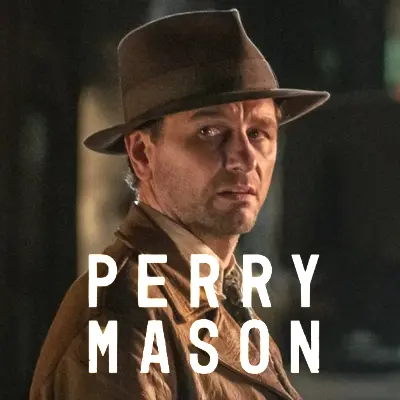Perry Mason has been able to fuse the antihero show with the procedural show
-

"The antihero saga has become the new procedural. In Perry Mason’s case, that transition just happens to be literal," says Alison Herman. "Of course, 'antihero show' and 'procedural' aren’t mutually exclusive; one genre pertains to character, the other to structure. There’s currently a cop show on Netflix about the literal devil! The two just have distinct sets of tropes, one of which is slightly newer to the TV lexicon than the other. The late-’50s Perry Mason discovered the efficiency of reusable sets and consistent characters as TV was transitioning from stage-like anthologies to filmed serials, a format that would soon come to define the medium. (The show’s use of legal consultants for factual bona fides, too, would become standard.) The 2020 Perry Mason is less a leader than a follower, but it’s adept at transplanting the dark-and-gritty treatment to its latest host with the help of a talented cast and a $75 million production budget...Shows like this latest Perry Mason inevitably earn unflattering comparisons to Breaking Bad, Mad Men, and other iconic series they’re squarely in the shadow of. But Perry Mason and its peers aren’t trying to replicate a now-20-year-old revolution; they’re invoking a legacy so integral to modern TV it’s become almost background noise. What Perry Mason aims for is something closer to Ozark, Netflix’s rote crime yarn that largely nonplussed critics but garnered a massive viewership and a slew of Emmy nominations. Another tale of a white-collar cartel associate, Ozark is less challenging than Breaking Bad, but also more accessible. Violence and amorality don’t guarantee shock value like they used to. Instead, they’re familiar tools, deployed with muscle memory and received with a knowing embrace. Originality isn’t the selling point there—nor with Perry Mason. The predictability is the point."
TOPICS: Perry Mason (2020), HBO, Peak TV
More Perry Mason on Primetimer:
